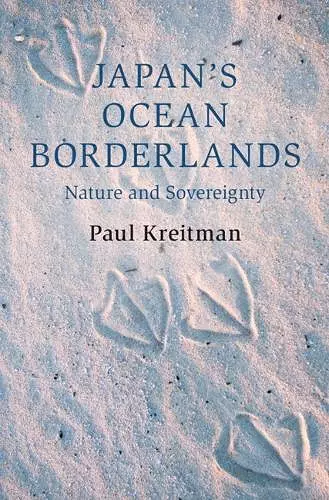Japan's Ocean Borderlands
Nature and Sovereignty
Format:Hardback
Publisher:Cambridge University Press
Published:27th Jul '23
Currently unavailable, and unfortunately no date known when it will be back
This hardback is available in another edition too:
- Paperback£29.99(9781108747462)

A global environmental history of Japan's disputed desert islands since the mid-nineteenth century.
Desert islands are the focus of intense geopolitical tensions in East Asia today, but they are also sites of nature conservation. In this global environmental history, Paul Kreitman explores how the politics of conservation and sovereignty have entangled on islands from Hawai'i to the South China Sea, from the mid-nineteenth century till today.Desert islands are the focus of intense geopolitical tensions in East Asia today, but they are also sites of nature conservation. In this global environmental history, Paul Kreitman shows how the politics of conservation have entangled with the politics of sovereignty since the emergence of the modern Japanese state in the mid-nineteenth century. Using case studies ranging from Hawai'i to the Bonin Islands to the Senkaku (Ch: Diaoyu) Isles to the South China Sea, he explores how bird islands on the distant margins of the Japanese archipelago and beyond transformed from sites of resource extraction to outposts of empire and from wartime battlegrounds to nature reserves. This study examines how interactions between birds, bird products, bureaucrats, speculators, sailors, soldiers, scientists and conservationists shaped ongoing claims to sovereignty over oceanic spaces. It considers what the history of desert islands shows us about imperial and post-imperial power, the web of political, economic and ecological connections between islands and oceans, and about the relationship between sovereignty, territory and environment in the modern world.
'Working in the eye-opening field of 'political ecology,' Kreitman shows how exploiting nature and conserving it both serve to 'perform' sovereignty.' Andrew J. Nathan, Foreign Affairs
'An entertaining and enlightening book.' Bill Hayton, Asian Affairs
'After reading this book, the reader can grasp the fluidity that surrounds these territories, invisible at a bird's-eye view. Their sovereignty, resources, and even geography and natural features have changed over time, influenced by both the oceanic environment and human activity.' Beatriz Martinez-Rius, H-Net
'The book's overall significance lies in its exploration of the role of the environment in geopolitical and imperial history, particularly in the context of Japan's oceanic territories. It provides a unique perspective on how ecological considerations can influence territorial claims, and the interplay between environmental conservation and national sovereignty.' Niki J. P. Alsford, International Journal of Maritime History
'Scholars of Japanese history will find Kreitman's arguments about the importance of bird islands and Japan's Pacific borderlands to Japanese imperial politics and identity to be engaging and perhaps surprising … Anyone working in maritime history will appreciate Kreitman's contributions to exploring the biopolitics of extraction, empire, and conservation … Finally, Kreitman's prose is engaging, and he explains his important ideas clearly. His writing style is accessible enough to attract the attention of anyone in the reading public interested in histories of nature, maritime exploitation, the Pacific, or Japanese empire. The book is a valuable addition to the scholarship on colonial Asia as well as oceanic history.' David J. McCaskey, H-Net Reviews
ISBN: 9781108489706
Dimensions: 235mm x 156mm x 19mm
Weight: 580g
300 pages